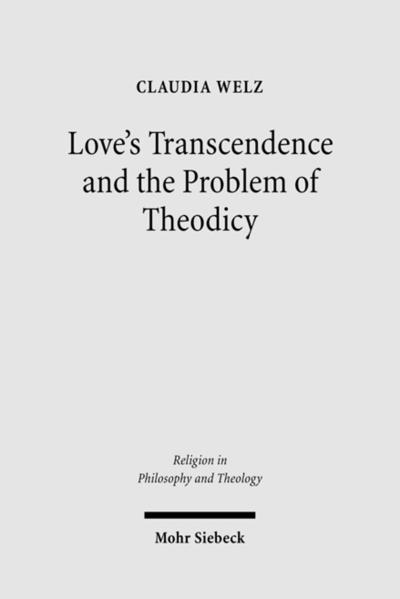WELZ,C., Love's Transcendence and the Problem of Theodicy. Tübingen 2008.
Love’s Transcendence and the Problem of Theodicy. 1. Aufl. Tübingen, Mohr Siebeck, 2008.
XX, 437 S. Fadenbindung. (Religion in Philosophy and Theology, 30). ISBN 9783161495618.
Since the problem of theodicy concerns all dimensions of human existence and cannot be reduced to a logical problem of consistency, it cannot be resolved by means of a theodicy, a rational defense of God before the tribunal of human reason. But how can we deal with ‘the wound of negativity?’ Claudia Welz explores responses that do not end up in a theodicy. Instead of asking about the origin and sense (or non-sense) of evil and suffering, she considers God’s (non)phenomenality, the dialectics of God’s givenness and hiddenness. Neither God nor evil is given ‘as such;’ rather, God and evil are determined for someone as something within specific contexts of experience. How does God appear in human life, and how is his phenomenal presence or non-presence related to the ambiguities of our lives? In the center of the book, Kierkegaard’s and Rosenzweig’s answers, their reasons for having no reason to defend God and their ethics of love are discussed ‘between’ German idealism and French phenomenology. Both of them follow Kant’s practical turn of the problem of theodicy, oppose Hegel’s theodicy through history and anticipate Levinas’ idea to look for the traces of God’s transcendence in human movements of self-transcendence. Moreover, they have remarkable contributions to the current debates on ‘metaphysics of presence’ and ‘onto-theology.’ In dialogue with Levinas, the presence of God’s love is in question, in dialogue with Derrida God’s presence as a gift, and in dialogue with Marion the gift of God’s presence as a so-called ‘saturated’ self-giving phenomenon. In conclusion to these discussions, theology is developed as semiotic phenomenology of the Invisible.
Order Number: 1971VB
Fixed Retail Price: EUR 104,--

